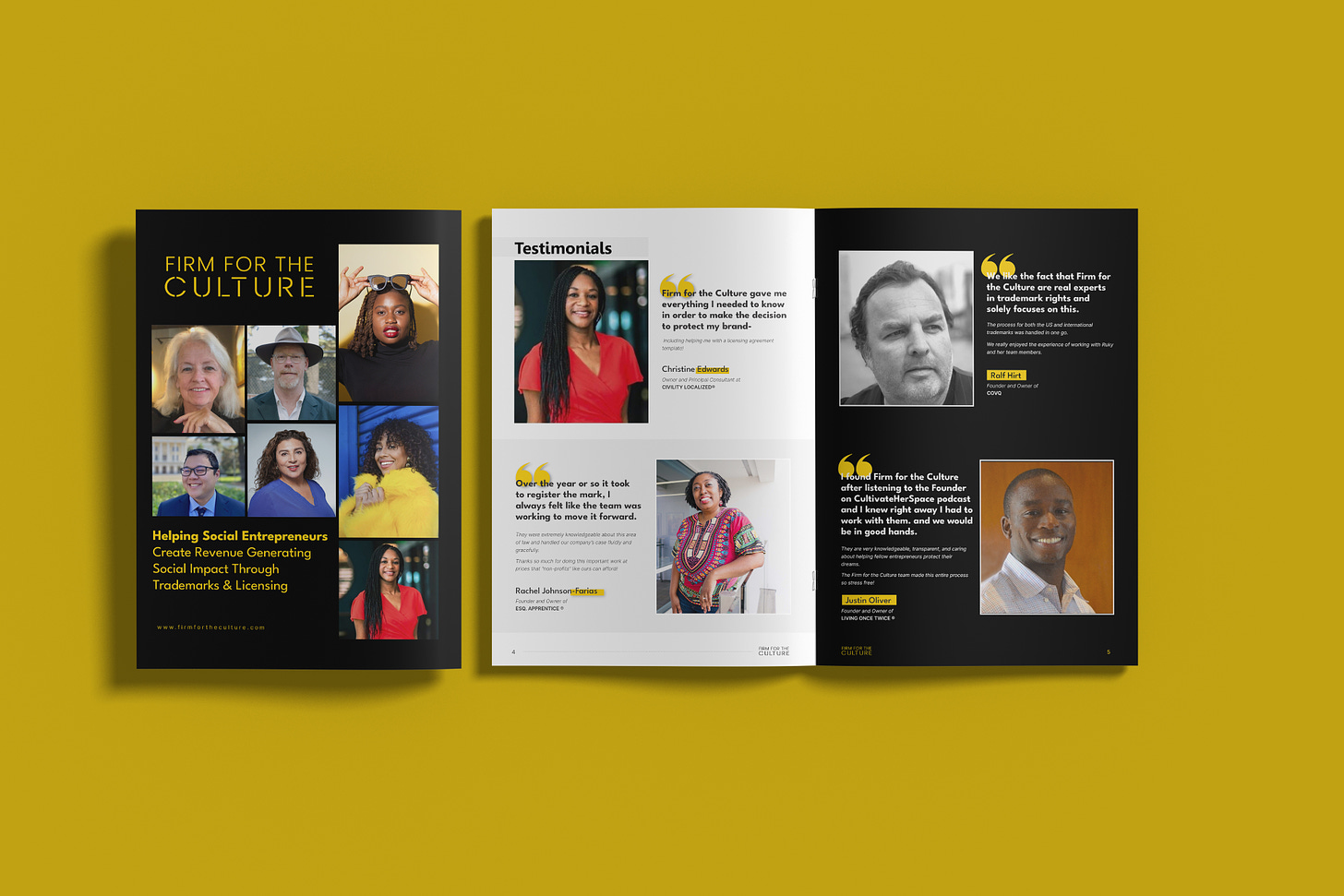Haters Call it "Micromanaging"
Four Leadership Terms to Help Your Team Rise to the Occasion | I Am What an Intellectual Property Attorney Looks Like.
Hey Fam,
It’s always great to connect with you.
So we’re moving and shaking at Firm for the Culture, and in the work that we do, I am unapologetically upholding standards of excellence for my team, vendors, and everyone around me.
That said, it’s important to clarify a reminder that has come up in my own head while holding try to my standards: holding people accountable isn’t the same as hovering over every move.
I’m not here to micromanage. But I will ask for proof. And that distinction matters.
As a leader, one of the biggest internal struggles I’ve faced is balancing trust in my team with the need for accountability, precision, and results.
I want my team to have the freedom to execute, innovate, and take ownership, but what I’ve noticed is that without clear expectations and structure, execution can become sloppy, inefficient, and redundant.
The moment I start pushing for proof, clarity, and discipline, it can be easy for someone to mistake that for micromanagement.
BUT LET ME BE CLEAR:
Loving This Post?
Show us some love by adding a “❤️” or commenting below; this will make our hearts sing.
Operational Integrity means running clean, structured, and intentional systems. It’s not just about doing the work—it’s about ensuring that our processes are efficient, transparent, and functional so that everyone can work smarter.
If it’s not written, it likely won’t happen.
If it’s messy, clean it up.
If it’s unclear, structure it better.
If it’s missing, document it.
At Firm for the Culture, this means daily auditing of our task lists, structuring information properly, and ensuring our communication systems are clear and efficient.
Operational Integrity isn’t optional. It’s the foundation of how work actually gets done.
One of the biggest timewasters in any organization is redundant work. When team members jump into execution without reviewing prior work, referencing past conversations, or pulling existing data, they end up reinventing the wheel instead of making real progress.
Audit Before Action is the standard that before you:
Draft an email, you check what’s already been sent.
Build a system, you review what’s already been created.
Make a recommendation, you look at existing insights.
When this doesn’t happen, we waste time, energy, and resources—and that’s unacceptable.
Innovation without information is just chaos.
At Firm for the Culture, we are disruptors—we challenge norms and push boundaries. But there’s a difference between bold innovation and reckless reinvention.
Informed Innovation means:
Creativity is backed by real insights.
You reference past performance before proposing something new.
You test ideas in a way that is strategic, not random.
I hear this all the time:
“I checked all the emails, and this is why I made this decision.”
“I already searched everything before taking action.”
But what does that actually mean? If you checked emails, which ones? If you searched, where did you look?
The standard is this:
Show your work. If you claim to have checked emails, provide a reference.
Cite your sources. If you say you reviewed something, include a link, a screenshot, or a reference.
Demonstrate your process. If you searched, explain where you looked and what you found.
Your words need receipts. Otherwise, I’m going to assume it hasn’t been done.
When I demand Operational Integrity, Audit Before Action, Informed Innovation, and Substance Over Statements, I’m not micromanaging. I’m asking for excellence.
If you’re leading a team and struggling with the same dynamic—where accountability is mistaken for control—introducing these terms will help you shift the culture.
Need Help Protecting Your Creativity?
If you are unsure—or if you know you need to take action—reach out to us.
We have helped countless founders and creatives safeguard their intellectual property, and we would love to do the same for you.
How do you hold your team accountable without being mistaken for a micromanager?
I’d love to hear your thoughts—drop a comment or reply with your insights!
If you need further guidance, reach out to me and my team at Firm for the Culture.
We’re here to help you navigate the copyright, trademark, and thought leadership journey.
Can’t wait to help you protect your dynamic impact.
And #ThatsAWrap
The Doors of the Church Firm Are Open
Thanks for reading.
See you next time.
















These recommendations are so on point. All I can say is "ouch." This is a reminder that I have a lot of work to do. Thanks for the reminder.